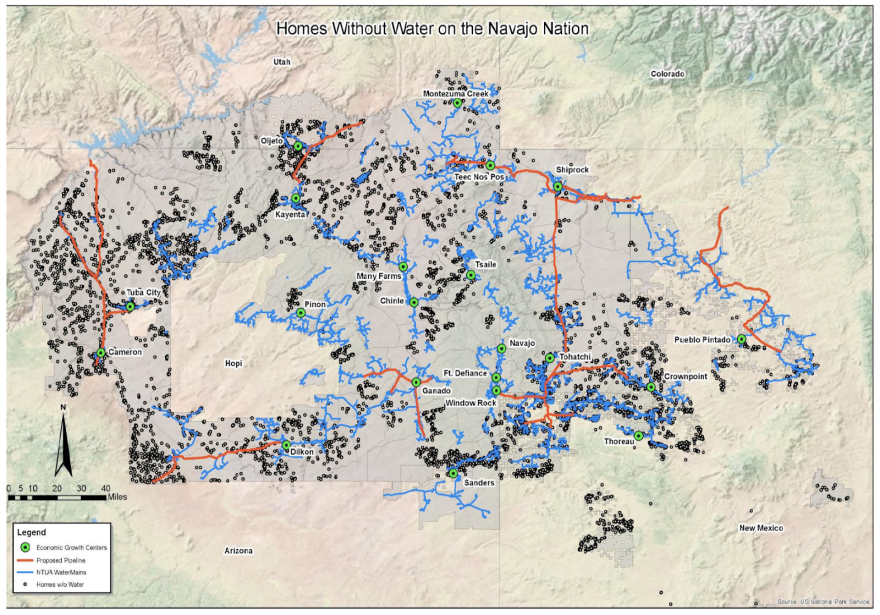After years of negotiation and delays, the Navajo Utah Water Rights Settlement Act passed the U.S. House and Senate on Monday as part of a federal coronavirus relief package. President Donald Trump is expected to sign the bill into law on Tuesday.
The settlement act gives the Navajo Nation the right to use 81,500 acre-feet of water from Utah’s Colorado River Basin apportionment each year, settling all future claims to water on the Nation in Utah.
It also includes $220 million in federal funding that will be used to treat and move the water to communities on the reservation in Utah, where over 40% of homes lack indoor plumbing.

“This is a historic milestone for the Navajo people and our past and present leaders,” said Navajo President Jonathan Nez. “This water settlement is one that was negotiated for many years and finally put before Congress for a vote on this day.”
Utah Gov. Gary Herbert also expressed appreciation for the passage of the settlement act, adding that negotiations began before he took office.
“I’m elated to see Congress pass this historic agreement between the state of Utah and the Navajo Nation,” he said. “This agreement represents more than 15 years of good faith work between our governments.”
Former Republican from Utah Sen. Orrin Hatch introduced the bill in 2016, and then again in 2018. It failed both times, despite being recommended to pass in 2018 by the Senate Committee on Indian Affairs.
Sen. Mitt Romney, R-UT, reintroduced the legislation in 2019, and it passed the Senate this June as part of a bipartisan bill related to Indian water rights. But it stalled in the House this fall, worrying proponents of the bill.
Mark Maryboy, a former tribal council member and San Juan County commissioner who worked on the settlement, said the passage of the bill this week came as a surprise.
“It’s kind of unbelievable that it happened,” he said. “A majority of the people [on the Navajo reservation in Utah] still haul water, and we will put a stop to that once we connect them to the water system.”
The Navajo Tribal Utility Authority will be in charge of connecting homes on the reservation in Utah to water. It currently provides water to around 40,000 homes and businesses with just 10,000 acre feet of water annually, according to the utility authority’s general manager, Rex Kontz.
Kontz oversees the entire reservations’ water system and said the 81,500 acre feet of water in the settlement is more than enough to meet the needs of the 5,000 or so residents of the Navajo Nation in Utah.
“It’s a huge amount of water,” Kontz said. “The next step is ‘How are you going to use it?’”
But Romney’s office has said the money in the settlement will help bring water to around 2,500 residents. The money is not earmarked for specific projects, and it will be up to Navajo Nation leadership to decide how to use it.
Maryboy is working on a plan to present to the Navajo Nation that includes using some of the funding to help farmers get water to their fields. He said there is a provision in the settlement agreement that allows some of the money to go toward agricultural uses.
“Most of the preliminary engineering work has been done,” he said. “The next thing to do is look at some contractors, begin construction.”
Before any of that happens, the state of Utah and the Navajo Nation must go through a legal process called stream adjudication, which will be handled by the Seventh Judicial District Court in Grand County.



